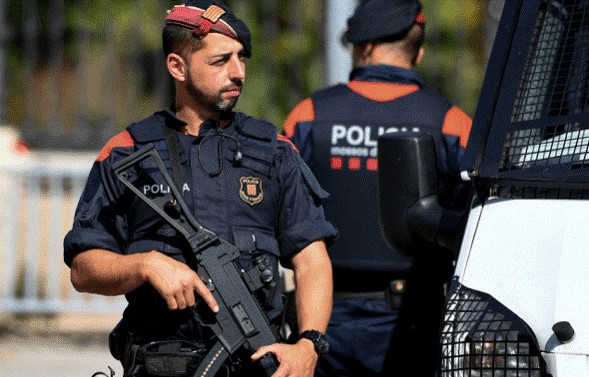
International Cybercrime Gang Arrested
Spanish police arrest 35 members of a criminal gang who committed over 1000 cybercrimes against local and foreign victims.
On June 14, in Alicante, Spain, Spanish police forces arrested 35 members of an international criminal ring which allegedly counterfeited bank cards and laundered the money obtained through Bitcoin.
According to the allegation made by the Spanish authorities, the criminal organization has committed over 1000 cybercrimes, against 219 victims from numerous countries including Spain, Israel, Denmark, Greece, France, and Germany. The members of the international gang, are reportedly nationals of Equatorial Guinea, Spain, Cameroon, Morocco, and Nigeria.
Through their crimes, the criminals were able to defraud their victims of approximately $674,000 and laundered a total of $1.2 M through the use of bitcoin.

Most of the crimes committed by the international gang were fairly ‘traditional’ in terms of bank card related crimes. The organization relied on 3 different ways of obtaining the details of the bank cards:
- Phishing through the email – pretending to be a respected, or a familiar individual, asking the victim to provide their banking details.
- Creating physical copies of the banking cards and reusing them
- Taking the bank account details from discarded credit card receipts (commonly referred to as credit card bin attack fraud).
The stolen cards and information were used in 13 different countries and were finally reported by a rental car dealership that reported unauthorized use of their company banking cards to pay for unwarranted online services. The criminal organization used the money stolen from the various bank accounts to support a lavish lifestyle, which included, according to police reports stays in expensive hotels, international flights and renting luxury vehicles. The criminal organization ran various companies which helped it launder the money it gained from its illegal activities. The Spanish police have been so far able to detect companies, operating under the organization’s command, in the UK, Finland, and Estonia. The companies located, laundered the majority of the money obtained by exchanging it for Bitcoin.


